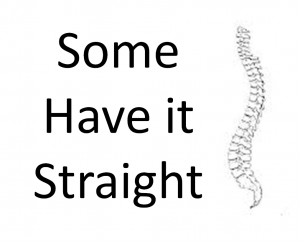I want my standing to be clear: at the age of 16 I was distributing European propaganda leaflets to my classmates. The decades since then did not pass in vain, but my position has not substantially changed.
I would also like to tell you how I tackled mykids’ education: I spoke English to them, but in the family I spoke the local Piedmontese dialect. Why? Because I thought – and think – that we belong to a greater whole whose de facto koiné is English, but we are collections of smaller groups with their own identities, the most characterising element of which is language.
After the ravages of two world wars the Founding Fathers of the European Unions conceived the project of creating a greater whole and their successors continued more or less in that spirit, but with decreasing momentum. In hindsight that was the best project that they could conceive, but today the European project looks weary.
One problem is that in most European countries the covenant that binds the people has been under attack for many years.
- In Southern Tyrol (Alto Adige in Italian), a part of the German speaking population wanted to return to Austria
- In Spain part of the the Basques fought for independence from the Spanish state
- In Northern Ireland the Catholics fought for independence
- In Belgium Walloons and Flemish could no longer live together and created a federation
- In former Czechoslovachia the Czechs and Slovaks could no longer live together and created two separate states
- In Italy the Northern League advocated independence to avoid paying taxes to a state that was accused to be unable to redistribute them properly
- In the former Yugoslavia Orthodoxes, Catholics and Muslims – Slavic and Albanians – not only could not live together, but each wanted a piece of the others’ territories
- In Scotland a sizeable number of Scots wish to separate from the United Kingdom
- In Catalunya a majority of Catalans confirm that they want a separate state from Spain.
Less prominent, but present in other states as well, regionalism if not separatism is mounting.
I do not believe there are cases where separatists feel they are being “occupied” or “oppressed” by an alien people – at least, no longer – but we live with a deadly recipe with such ingredients as “the capital city exploits us”, “we want to stay by ourselves because we are different”, “we are in the same country just because our ancestors lost the battle of…”, “they always exploited us” and so on.
The situation is worrying because the mixed economic situation exacerbates the spirits of the claimants and, to make an already unstable situation more difficult, millions of migrants wait at the gates of Europe. Still the states and Europe take the attitude that “legality is to be preserved”, i.e. “forget about changing anything”.
I do think that this attitude is not sustainable and that there is a way to handle these problems that is inspired by my handling of the education of the kids. We have a “container” – Europe – that includes both states and regions. Does it really make a difference if Catalunya is part of Spain or is directly part of Europe, if South Tyrol is part of Italy or directly part of Europe, if there is no Belgium and there are in its stead Wallonia, Flanders and the Brussels Federal District?
Of course there is, because fiscality, not the wrongs of history, is what drives the claims of separatists, hard or mild. This matter is to be resolved by politicians who should stop repeating the mantra of “legality is to be preserved” and take the bull by the horns.


